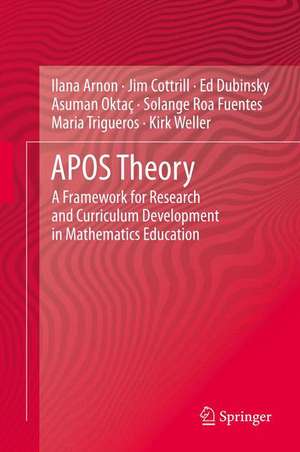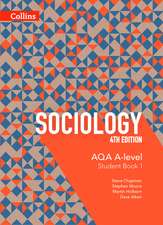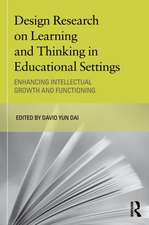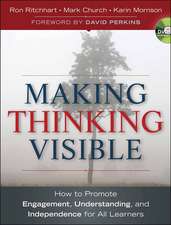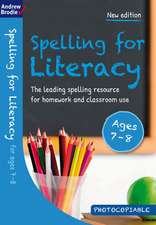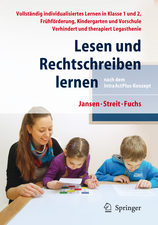APOS Theory: A Framework for Research and Curriculum Development in Mathematics Education
Autor Ilana Arnon, Jim Cottrill, Ed Dubinsky, Asuman Oktaç, Solange Roa Fuentes, Maria Trigueros, Kirk Welleren Limba Engleză Hardback – 5 aug 2013
| Toate formatele și edițiile | Preț | Express |
|---|---|---|
| Paperback (1) | 639.08 lei 6-8 săpt. | |
| Springer – 27 aug 2015 | 639.08 lei 6-8 săpt. | |
| Hardback (1) | 644.18 lei 6-8 săpt. | |
| Springer – 5 aug 2013 | 644.18 lei 6-8 săpt. |
Preț: 644.18 lei
Preț vechi: 757.85 lei
-15% Nou
Puncte Express: 966
Preț estimativ în valută:
123.27€ • 131.81$ • 102.77£
123.27€ • 131.81$ • 102.77£
Carte tipărită la comandă
Livrare economică 18 aprilie-02 mai
Preluare comenzi: 021 569.72.76
Specificații
ISBN-13: 9781461479659
ISBN-10: 1461479657
Pagini: 270
Ilustrații: XI, 254 p.
Dimensiuni: 155 x 235 x 23 mm
Greutate: 0.52 kg
Ediția:2014
Editura: Springer
Colecția Springer
Locul publicării:New York, NY, United States
ISBN-10: 1461479657
Pagini: 270
Ilustrații: XI, 254 p.
Dimensiuni: 155 x 235 x 23 mm
Greutate: 0.52 kg
Ediția:2014
Editura: Springer
Colecția Springer
Locul publicării:New York, NY, United States
Public țintă
ResearchCuprins
Chapter 1 Introduction.- Chapter 2 From Piaget’s Theory to APOS Theory: Reflective Abstraction in Learning Mathematics and the Historical Development of APOS Theory.- Chapter 3 Mental Structures and Mechanisms: APOS Theory and the Construction of Mathematical Knowledge.- Chapter 4 Genetic Decomposition.- Chapter 5 The Teaching of Mathematics Using APOS Theory.- Chapter 6 The APOS Paradigm for Research and Curriculum Development.- Chapter 7 Schemas, Their Development and Interaction.- Chapter 8 Totality as a Possible New Stage and Levels in APOS Theory.- Chapter 9 Use of APOS Theory to Teach Mathematics at Elementary School.- Chapter 10 Frequently Asked Questions.- Chapter 11 Conclusions.- Chapter 12 Annotated Bibliography.- References.- Index.
Recenzii
“This book is clearly intended to persuade researchers to consider adopting an APOS-based approach. … the authors describe APOS theory as a Kuhnian paradigm, and set out to explain the paradigmatic questions, assumptions, and methods that within-paradigm researchers adopt. … In sum, for a reader interested in understanding APOS theory, this is an excellent book. It lays out APOS’s theoretical assumptions and standard research methods with clarity and precision, and it gives helpful examples of research conducted within the programme.” (Matthew Inglis, International Journal of Research in Undergraduate Mathematics Education, Vol. 1, 2015)
Notă biografică
Ed Dubinsky is a Visiting Adjunct Professor at the University of Miami, FL, USA. Dr. Dubinsky is considered the father of APOS Theory. Ilana Arnon is a lecturer of Mathematics Education for prospective middle school mathematics teachers at Givat Washington Academic College of Education, Israel. Jim Cottrill is an assistant professor of Mathematics at Ohio Dominican University, OH, USA. Asuman Oktaç is a professor in the Department of Mathematics Education at CINVESTAV-IPN, Mexico. Dora Solange Roa is an associate professor in the School of Mathematics at the Universidad Industrial de Santander, Colombia. Maria Trigueros is a professor in the Department of Mathematics at Instituto Tecnológico Autónomo de México, Mexico. Kirk Weller is a professor and head of the Mathematics Department at Ferris State University, MI, USA.
Textul de pe ultima copertă
Although APOS Theory has been used extensively in numerous scholarly publications, in the design of textbooks, and in teaching practice, there is no single reference that contains all the relevant information about its components, and provides guidance about its application. The goal of this book is to present the main elements of APOS Theory and its use. The book is intended to be useful for Mathematics Education researchers, graduate students in Mathematics Education, and Mathematics instructors who work with, or would like to learn more about, this theoretical approach, and who are interested in how, according to this theory, individuals construct their understanding of mathematical concepts.
Caracteristici
The first book on APOS Theory in Mathematics Education, written by the people who developed APOS Theory Provides examples of curriculum development utilizing APOS Theory Links research and teaching APOS Theory in a coherent manner Describes relation of APOS Theory to Functions, Mathematical Induction, Discrete Mathematics, Linear and Abstract Algebra? and more
